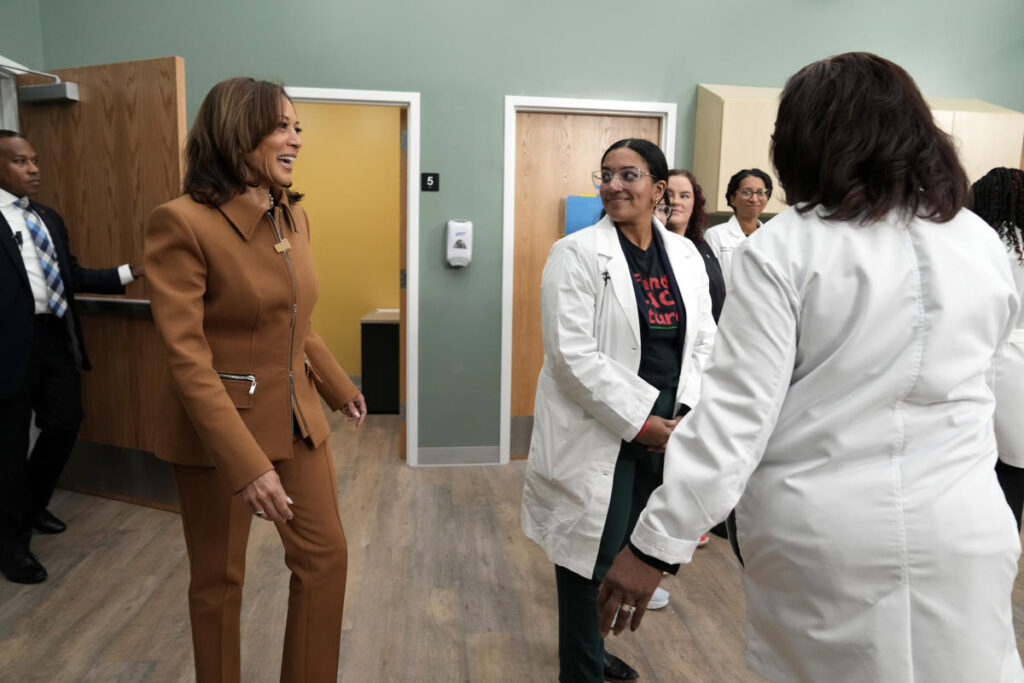In recent months, student loan cancellation has become a contentious topic within the Democratic Party, one that both President Joe Biden and Vice President Kamala Harris approach with caution. At a campaign rally in Wisconsin, Biden heralded a new plan aimed at providing financial relief to over 30 million Americans with student loans. However, Harris has noticeably shifted her focus away from this issue, likely in an effort to appeal to moderate voters who may not resonate with blanket loan cancellation. During a speech in Pennsylvania, she indicated that the country should acknowledge other viable paths to success that don’t necessitate a four-year college degree, signaling her platform’s emphasis on inclusivity for Americans outside the traditional educational system.
The rapid change in the political landscape surrounding student loan forgiveness highlights its evolution from a promising Democratic strategy to a perceived liability. Once considered a tool to galvanize young voters, student loan relief has become fodder for Republican criticism, who argue that it favors a privileged few while ignoring those who responsibly repaid their debts or chose not to attend college. The debate arose again when former President Donald Trump lambasted Biden and Harris during a presidential debate, accusing them of failing to fulfill their campaign promises related to student loan cancellation, which he claimed misled young Americans.
Despite Biden once championing student loan forgiveness as part of a broader progressive agenda, his administration has faced persistent opposition, particularly from Republican states. His initial proposal to cancel up to $20,000 in debt for millions was halted by the Supreme Court, and subsequent plans have been similarly stymied in the legal arena. The further attempt made by the Biden administration, aimed at assisting Americans burdened by heavy financial debt beyond education, remains uncertain as it approaches a crucial election period. This ongoing legal turmoil has likely influenced Harris’s reluctance to address student loan forgiveness directly, as any commitment on her part may risk igniting Republican opposition and alienating undecided voters.
The shift in focus from loan cancellation to policies targeting workers without degrees also reflects a broader political strategy. Polling data indicates disappointment in Biden’s handling of student debt, with only a small fraction of the population expressing approval of his actions. This unease extends even to the Democratic base, suggesting that both candidates may perceive student loan forgiveness as unifying. Consequently, Harris has opted to promote initiatives that would eliminate unnecessary degree requirements for federal jobs, instead emphasizing the value of skills over formal education credentials, a narrative that resonates with many voters who question the conventional value of obtaining a degree.
Interestingly, Harris’s tempered stance on student loan forgiveness aligns her sentiment with certain Republican views, including Trump’s campaign focus on creating affordable alternatives to traditional education. While he explicitly opposes student loan cancellation, he suggests ways to alleviate the financial burdens placed on young Americans. This shared ground hints that bipartisan solutions might be possible if contentious issues, like loan forgiveness, can be set aside. By doing this, Harris aims to cultivate broader support by addressing the educational concerns of those who may not have attended college while maintaining a lower profile on polarizing topics.
As the vice president, Harris has a complicated history with student loan debt initiatives. Her previous proposals demonstrate a commitment to accountability in the higher education sector, particularly against for-profit institutions, but her current platform lacks detailed provisions for those still grappling with student loans. Nonetheless, advocates believe Harris is positioned to uphold the commitments made by the Biden administration, given her previous actions and statements of support for the debt relief measures that have already been implemented. While her public discourse reflects a cautious approach to the ongoing debates around student loans, it also signals an opportunity for her to maintain a focus on making higher education more accessible for the broader populace as challenging economic realities persist.

